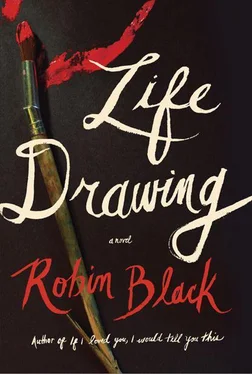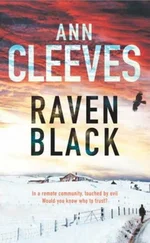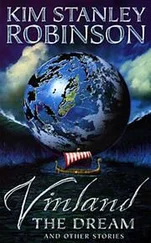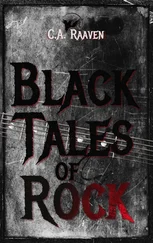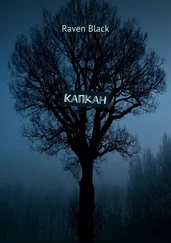“This is lovely,” Alison said.
“Cool chairs,” Nora said. “I love how nothing matches but somehow everything does.”
“Thanks. I like to think I was shabby before shabby was chic.”
When Owen appeared, he stopped at the door to take it all in, the table and the three women then sitting at it too. He smiled at me and nodded just once, barely at all, a private tip of his hat to the tableau.
“No one makes a table like Gussie does,” he said, as he sat.
“I’ve made baked chicken, nothing fancy, but lots of garlic. And salad. And there’s some bread that’s just the frozen stuff from the grocery store that you throw in your oven but is actually surprisingly good.” As I spoke, I noticed Nora briefly close her eyes and lower her head. “So eat up,” I said. “It’s simple but it’s plentiful.”
We began passing dishes, and it was obvious even in candlelight that Nora was blushing her way through meeting up with Owen again. She, who hadn’t struck me as the least bit shy earlier, was suddenly bashful and stiffly formal as she apologized to him for her visit. He assured her it had been absolutely fine, but an element of discomfort hung in the air until Alison intervened. “There’s clearly only one way to manage this,” she said. “So we can all move on. Each of us has to tell an embarrassing story about something we did when drunk or otherwise impaired.”
Owen laughed. “I don’t think we have enough time,” he said. “There was a good two years in there where I mostly made a fool of myself, full-time. Right before I met Gussie. Not that you made a fool of yourself,” he added to Nora. “Anyway, luckily, I’ve forgotten most of those days.”
I took some salad and passed the bowl. Every embarrassing episode I could remember had something to do with throwing myself at someone, flirting outrageously with a professor, kissing the boyfriend of a friend. I couldn’t see how parading a series of disinhibited-crush stories was going to help. “Nora, why don’t you tell us what you have planned, now that you’re back stateside? Are you working? Do you have a job?”
“Well, I’m looking,” she said. “It’s not a great time to be your basic generic English-major college grad. It used to be if you were willing to work for pretty low pay, you could get a job, but it’s not that easy now. It’s really hard.”
“I’m sure you’re underselling yourself,” I said.
“She is,” Alison said. “Nora’s got all kinds of things she could do.”
“And you’ll never regret having read all those books,” Owen said — which I thought sounded a little pompous and not really like him, even though it was a sentiment he doubtless believed.
As we ate, the conversation continued to revolve around Nora. We heard about her trip to Italy and, prompted by Owen, she talked about the writing she had done in college — blushing again, all through that topic.
“I did a modern take on The Decameron ,” she said. “That was my thesis. A reconsideration of the stories, as if they were in current-day America. I read Italian, so that part was fun.”
“That sounds ambitious,” Owen said. “You must have something like a book.”
“Well, maybe it’s like a book, but it’s definitely not a real book. They’re pretty bad. I mean, it was a good experience, but it’s not anything I’d want to work on ever again.”
She didn’t remind me of Laine — not at all, Laine with her tattoos, her exploding enthusiasms, and her longing for badass creds — except in the unself-conscious way the young can talk so obsessively about themselves, sometimes charmingly, sometimes tediously. I wondered if Alison had any impulse to redirect the topic or nudge her daughter to ask us some questions about our lives, but she seemed entirely happy just listening. Occasionally, she would beam my way, as if to say Isn’t she just amazing? Isn’t she lovely? And I would beam back, all the while feeling a steadily growing emotional pressure in myself. What must it feel like to be so adored? To be able to change how a parent carries herself? To produce such expressions of joy? My father had rewarded our accomplishments and expressed a quiet pride in us. But was he ever blinded by love? Would he ever have just basked in the sound of my voice? Heard every word I spoke on a flattering frequency?
And then, as the minutes passed, the inevitable, ancient question: Would my mother have? Would she have given me this devoted attention, this unchallenged right to center stage? It was easy enough to think so, sitting there. Charlotte, all of seven when our mother died, had often told me stories about the fun we all had baking cupcakes, singing in the car, playing in the park. She loved pushing us on swings , she would say, trying to slip her memories into my soul. She kissed us goodnight every night, in bed. She woke us up with kisses, too . In a sense it had worked. I carried distinct images to go with every story Charlotte told, each snippet hovering in the generous space where imagination and memory blur. She sang songs in French sometimes . But since Charlotte’s death, I had felt those images fade as well. And my father was now incapable of having the conversations that he had always refused to have — unless his roulette-wheel mind happened to spin that way one day.
Watching Alison and Nora, smiling at them when appropriate, asking questions as needed to keep the conversational flow, I realized that there was no one left who could remember my mother. Maybe a cousin somewhere, an old neighbor. But not anyone close to me. Not anyone I could find. It had turned out to be a three-stage death: first hers, then Charlotte’s, and then this horrifying slow leak taking place in my father’s brain. And then there were none.
“You looked preoccupied at dinner,” Owen said, as we lay in bed later in the dark, both of us just too drunk to consider trying to work. “You looked a little blue.”
“I may be a little blue,” I said. “It will pass.”
“Anything I can do?”
It turned out that there was, though until he had asked, I hadn’t known. Darkness and sex. Desire poured from me in a way I didn’t expect and I’m sure he didn’t either as I wrapped my arms around his back, pulling him close enough that at moments the goal became barely sexual, but only an embrace so intense that I could feel nothing else.
My dear Laine
, I wrote the next morning.
Huge embarrassed apologies for taking so long to respond. It’s been a difficult summer here and I’ve been waiting for time enough to give you a full sense of things, but then of course that time never does come. Owen has been struggling with work and my father’s health is deteriorating. And we have a neighbor! This is such a huge change. I like her — which is a blessing because at these close quarters if she were awful it could be a disaster. But even that, just making a new friend, is strangely disruptive. You know what a hermit I can be if left to my own devices.
Mostly, though, I am so happy to hear that the summer has been a productive one for you. (And I hope that’s still true …) And by productive I mean both art and dumping any poser boyfriends. It’s been productive for me too, in spite of all these distractions. I’m at work on a project, a series of paintings that are exciting me in a way I haven’t felt for years. But of course I’m also thrown right back to where we all get thrown with anything new: the whipsaw of imagined greatness and certain failure. You would think after all these years there would be some way to moderate the extremes, but apparently not. So I am pinging around in a distinctly bipolar way, but I am being productive, so I don’t really care that I feel a little unhinged
Читать дальше
